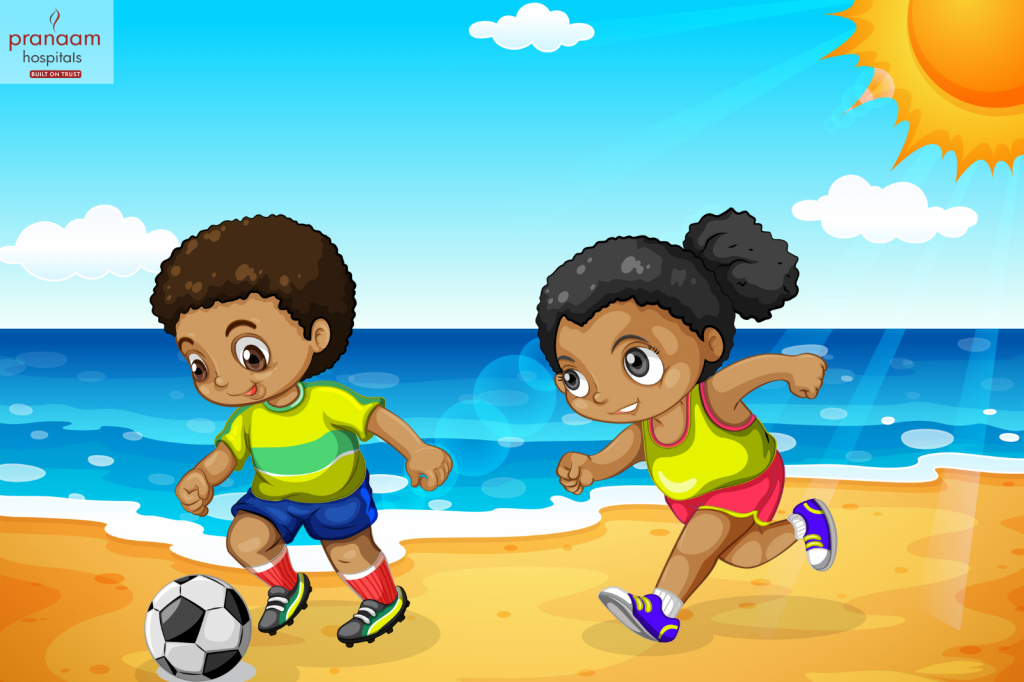Sun Protection: Encourage youngsters to apply sunscreen with SPF 30 or higher before going outside and to reapply every hour or after swimming or sweating. Dress them in lightweight, long-sleeved garb, hats, and sunglasses for added protection against harmful UV rays.
Stay Hydrated: Ensure youngsters drink plenty of water throughout the day, especially during out-of-doors activities. Keep water bottles effortlessly on hand and encourage ordinary hydration breaks, especially in warm climates.
Pool Safety: Supervise youngsters carefully around water, whether it’s a pool, lake, or beach. Teach them to swim and emphasise water protection guidelines such as not going for walks near pools and always swimming with a buddy.
Stay Cool: Seek shade during peak sun hours (usually between 10 a.m. and 4 p.m.) on hot days. Plan indoor activities or provide shaded areas for outdoor play to prevent overheating.
Bug Protection: Protect children from bug bites by using insect repellent and dressing them in long sleeves and pants when in wooded or grassy areas. Check for ticks after outdoor activities, especially in areas where Lyme disease is common.
Stay Active: Encourage kids to stay active, but be mindful of extreme heat. Schedule outdoor activities for early morning or late afternoon when temperatures are cooler. Ensure they take regular breaks and stay hydrated to prevent heat exhaustion.
Safe Play: Before permitting youngsters to play, look into playground equipment for any signs of damage. Supervise them carefully and train them on playground safety regulations to prevent accidents.
Stay Informed: Keep track of weather forecasts and air quality reports and alter out-of-door activities accordingly. Stay knowledgeable about local health advisories or safety signals that can affect your plans.
Stay Connected: Establish clear communication guidelines and check-in times if kids are old enough to be out on their own. Ensure they have a way to contact you in case of emergencies.
Emergency Preparedness: Review basic first aid and emergency procedures with children, including how to call 108 and what to do in case of accidents or injuries.
Also Read: The Profound Benefits of Breastfeeding for Babies and Mothers
An Information About Thyroid


